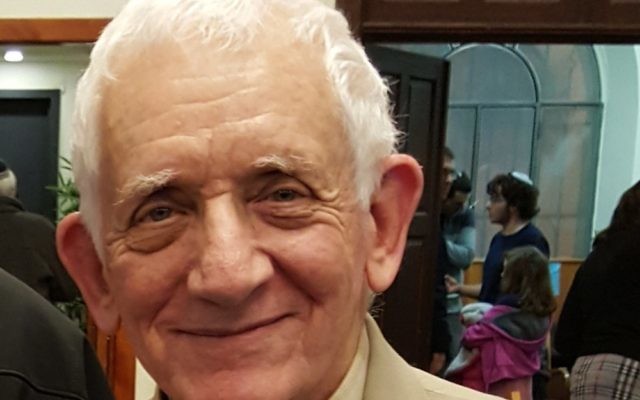The Political Ups and Downs of the State of Georgia
Rabbi David Geffen shares his experience of politics in Georgia.
Rabbi David Geffen is a native Atlantan and Conservative rabbi who lives in Jerusalem.
When I was ten years old in 1948 Atlanta, Georgia where I was born, Fulton County, the largest county in Georgia, we were taught in public school, could never have a winning candidate for state office because of the county unit system. It was one of the most blatant thieves of the votes of the public. The system had been fashioned by the downstate Georgia “good old boys” in 1917 to make sure that the outstanding state leaders from Fulton county could never be a governor.
Under the county unit system, the 159 counties in Georgia were divided by population into three categories. The largest 8 in number, named urban, were given 6 county unit votes. The second group called town counties, 30 in number were given 4 unit votes. The smallest counties, labeled rural, 121 in number received 2 unit votes each.
The Jewish population of the state in the mid 50s was 12,000. Today it is 137,000. A Jewish champion appeared. He was an attorney, whose name I had never in his 30s. My father, a lawyer, knew a colleague Morris Abrams, a Rhodes Scholar, from a small town Fitzgerald in the southern part of the state. Quite brave legally, Abrams had decided to fight the county unit. In my political science club at Emory University in 1957, Abrams was our guest. He spoke brilliantly and shared with us his plan to bring the county unit system to the Supreme Court. I don’t recall the details but in th highest court in USA, he triumphed in 1963 and the county unit system was declared unconstitutional.
During 1934 my mother, Anna Birshtein, and my father, Louis Geffen, married, my father had his own Atlanta Georgia political experience. As a young lawyer, he had practiced for six years and he knew many people. So he decided to run for the Atlanta School Board. He had numerous African-American clients, but only the whites could vote in the Democratic Party primary.
In a letter he sent my mother in September 1934 while they were courting by mail, he listed the names of all the voters whom he thought would cast their ballots for him. He needed 62 or 63 to win. As you can imagine, this was an education district, and everyone knew the voters.
Well my father lost in the Democratic Party elections. African-Americans could not vote in the primary plus the Republican Party, unlike Georgia today, had very few members. Winning the primary meant you had won the election. His letters to my mother, since they had gotten engaged before the voting, were a bit somber. He knew that he tried his best, but back then Jews rarely triumphed in a municipal election. He was resigned to his defeat. I am sure that his 2 brothers and 3 brothers at home encouraged him just to put the election behind him.
My parents were married in Norfolk Virginia on December 26 1934, where my mother, her parents, her siblings lived. My parents had 5 rabbis officiating at their wedding; my late wife Rita and I only had 4. They traveled to Florida for their honeymoon, staying at one of the earliest kosher “boarding houses” for their honeymoon.
They returned to Atlanta in early January and discovered, first, that the photographer at their wedding in Norfolk had forgotten to put film in the camera. Alas no pictures; I can not see my parents get married.
The other news was much better. The man, whom my father had lost to in the election, had gone “mad” and was placed in an insane asylum. (Those are the only details I know about my father’s opponent).
The Board of Aldermen of Atlanta elected him to office as the fifth ward member of the school board of Atlanta. In the newspaper articles I have seen about his two years in office, he looks very happy. He did not run in another election, but I do have one of his cards which he gave to perspective voters.




comments